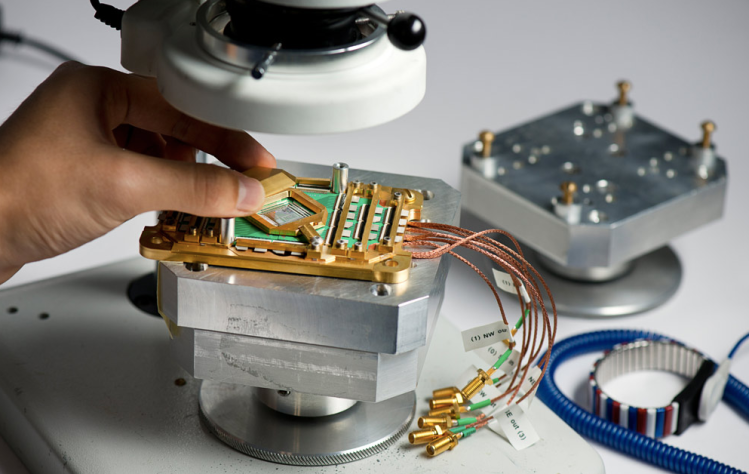While Google regularly gives futurists talking points by pursuing experimental projects like driverless cars and smart contact lenses, the company’s investment last year in a “quantum” computer from startup D-Wave Systems could well help the tech giant with a few of its core processes.
D-Wave’s equipment works with data stored not in binary zeroes and ones but instead in qubits, which can be one or the other, or both simultaneously, and can thereby perform certain computations faster than classical computers. Google is hoping to apply this equipment to tasks like generating search results, delivering advertisements, and filtering out spam, among other things. That’s according to a report today from New Scientist, which had a look at D-Wave’s contract with Google and NASA, whose Ames Research Center in Mountain View, Calif. stores the D-Wave machine.
Critics have challenged D-Wave in the past on whether its systems do in fact achieve a quantum state. All the same, Google wanted one.
Google’s previously been a bit vague what applications it had in mind for the hardware. Google last year published a video about its ownership of the D-Wave computer on the Google Quantum A.I. Lab Team’s Google+ page. More recently, Google announced on that same page that John Martinis and his team at UC Santa Barbara would work with Google to construct quantum chips. But assessing Google’s goals here has been difficult.
Now it’s clear that Google is open to using emerging technologies to improve some of its most important operations. These days, advertising services fetch Google more than two-thirds of its revenue. Surely Google wants to ensure that its advertising technology can outperform that of any other company, so it’s hardly a shock to see that among the applications Google was thinking about when it invested in a D-Wave computer.
Of course, Google could be wondering if quantum computing could foster the development of next-generation applications for its own internal consumption or for consumers. Indeed, Google was interested in seeing if the technology could be applied to personal assistants, according to the New Scientist article. Think Google Now — but who knows? Perhaps better, more speculative. But at the moment, it looks like Google is keen to find out if quantum computing could help with more revenue-generating types of computations.


